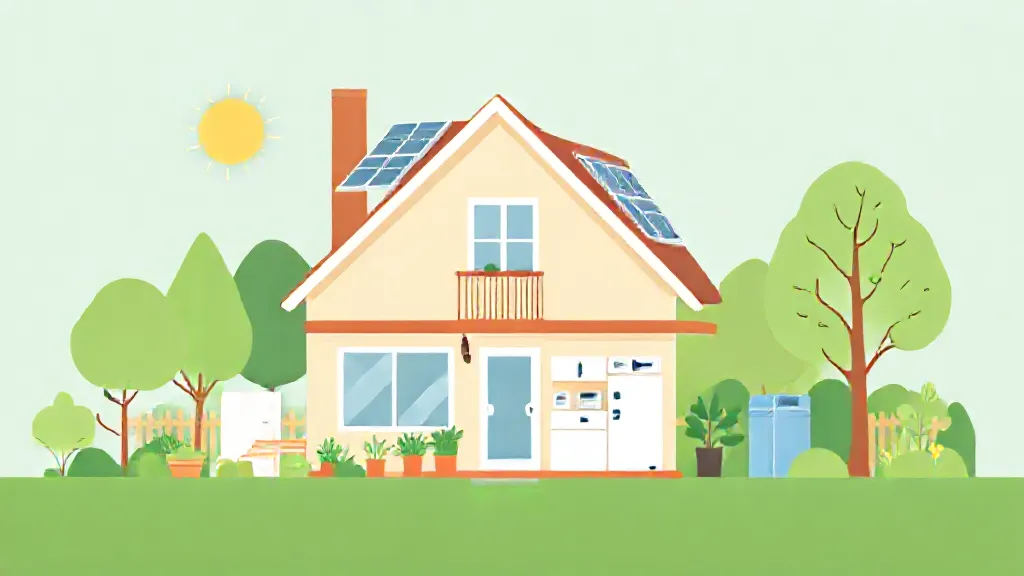Energy efficiency in homes has become a crucial topic in discussions related to sustainability, environmental protection, and economic savings. As the world grapples with the effects of climate change, the significance of reducing energy consumption in residential buildings cannot be overstated. Energy-efficient homes not only lower utility bills for homeowners but also contribute to a more sustainable future by decreasing carbon footprints.
The Environmental Impact of Energy Inefficiency
One of the primary reasons energy efficiency is vital in homes is its direct impact on the environment. Traditional homes often rely on outdated systems and appliances that consume excessive energy, leading to higher greenhouse gas emissions. According to the U.
S. Environmental Protection Agency (EPA), residential buildings account for about 20% of the total energy consumption in the United States. By upgrading to energy-efficient appliances, insulation, and lighting, homeowners can significantly reduce their energy consumption and, consequently, their environmental impact.
Economic Benefits of Energy Efficiency
Beyond environmental considerations, energy efficiency also offers substantial economic advantages. Homeowners can save a considerable amount on their energy bills by investing in energy-efficient technologies. For example, Energy Star-rated appliances use 10-50% less energy than their non-rated counterparts.
Over time, these savings can add up, making energy-efficient upgrades a smart financial decision. Additionally, many governments offer tax incentives and rebates for energy-efficient home improvements, further enhancing the economic appeal.
Enhancing Home Comfort and Value
Energy efficiency plays a vital role in enhancing the comfort of a home.
Proper insulation and energy-efficient windows help maintain consistent indoor temperatures, reducing drafts and cold spots. This not only makes living spaces more enjoyable but also reduces the reliance on heating and cooling systems. Furthermore, energy-efficient homes often have higher property values.
As more buyers prioritize sustainability, homes with energy-efficient features become more attractive in the real estate market.
The Role of Renewable Energy Sources
Integrating renewable energy sources, such as solar panels, can further enhance a home's energy efficiency. Solar energy systems allow homeowners to generate their electricity, reducing reliance on fossil fuels.
This not only lowers energy bills but also contributes to a cleaner environment. In many cases, homeowners can even sell excess energy back to the grid, creating an additional revenue stream while promoting sustainability.
Government Regulations and Standards
Governments worldwide recognize the importance of energy efficiency and have implemented various regulations and standards to encourage its adoption.
For instance, the International Energy Agency (IEA) has set targets for reducing energy consumption in buildings through building codes and energy performance standards. These regulations not only promote energy efficiency but also drive innovation in construction and appliance manufacturing, leading to the development of new technologies that further enhance energy savings.
Community and Global Implications
The benefits of energy efficiency extend beyond individual homes to communities and the globe.
When multiple households adopt energy-efficient practices, the collective reduction in energy demand can lead to less strain on power grids and lower energy prices. Moreover, reducing energy consumption on a large scale helps mitigate the effects of climate change, contributing to global efforts to meet emission reduction targets outlined in international agreements like the Paris Agreement.
The Future of Energy Efficiency in Homes
As technology continues to advance, the future of energy efficiency in homes looks promising.
Smart home technologies, such as smart thermostats and energy management systems, allow homeowners to monitor and optimize their energy use in real-time. These innovations not only enhance convenience but also empower homeowners to make informed decisions about their energy consumption, leading to even greater savings and environmental benefits.
In conclusion, energy efficiency is of paramount importance in homes for a multitude of reasons.
From environmental protection and economic savings to enhanced comfort and community benefits, the advantages of adopting energy-efficient practices are clear. As we move towards a more sustainable future, prioritizing energy efficiency in residential buildings will play a critical role in addressing the pressing challenges of climate change and resource conservation.
